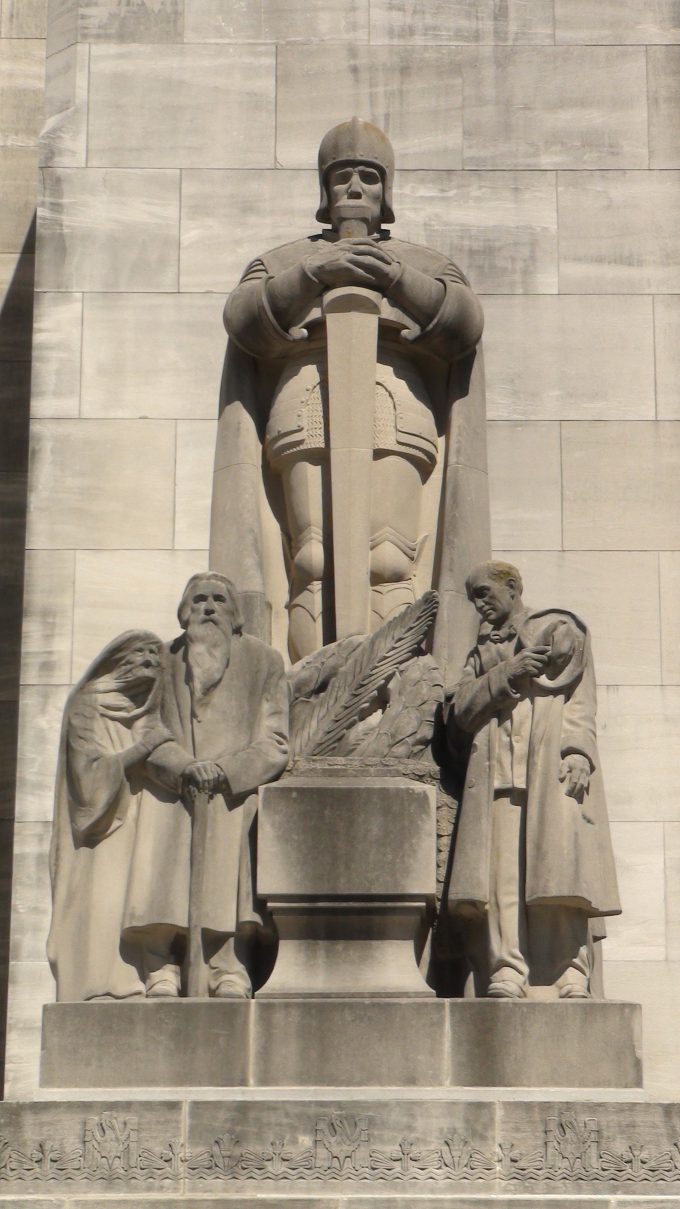
Tuesday, 13 September 2016
…that we should no longer be children, tossed to and fro and carried about with every wind of doctrine, by the trickery of men, in the cunning craftiness of deceitful plotting, Ephesians 4:14
Paul is still speaking of the appointment of the five offices mentioned in verse 11. These were given for the purpose of equipping the saints, edifying the body, and so forth. This then would lead to the point where “we all come to the unity of the faith and of the knowledge of the Son of God, to a perfect man, to the measure of the stature of the fullness of Christ” (verse 13).
Now, in contrast to the “perfect man” just mentioned, he reverts to the thought of what so many in the church are, children. This word is often translated as “babes” or “infants.” It is almost exclusively used in a negative sense. It refers to those who are impulsive, rash, unthinking, and so on. Such people are easily manipulated and their doctrine is as changing as those of the garments of a woman in a fashion show.
The reason for this is because they are not grounded in Scripture by those who have been mentioned in verse 11. This is what they need, but it is also what they often stubbornly refuse to receive. People who spend all their time in prophecy circles are a classic example of this type of believer. They are often shallow in biblical knowledge, and their focus is myopic and twisted. Such people are ripe for being turned with very little effort at all. Their attention span is only as long as the next crazy video about another “prophecy” issue.
Thus they are “tossed to and fro.” This is the only use of the word kludónizomai in the Bible. It refers to the waves which rise and fall, billowing high and then turning into deep caverns. People without proper doctrine are carried along in just this manner, ever pulling at their faces and saying, “Oh my!” as they are pulled from strange doctrine to strange doctrine. Such crazy teachings are described by the words, “with every wind of doctrine.”
In a raging storm at sea, the winds turn from one direction to another, blowing the spray of the waves right in the face of the sailors at one moment, and then knocking them off their feet from behind in the next. This is the idea that Paul gives here. Instead of picking up the Bible, checking it carefully, and taking all verses in context as they should, they pull verses out of context, or they receive verses already torn out of context. They establish doctrines which have nothing to do with God’s intent for His people.
This is done “by the trickery of men.” The Greek word is kubeia, and it is another word unique to the Bible. It is the source of our word “cube,” and hence it gives the idea of dice. The sleight of hand by the player of dice fools those who are in the game. So it is with the sleight of hand of those who misuse Scripture in order to pervert its true, pure, intended meaning. Jehovah’s Witnesses, and Hebrews Roots Movement teachers are great examples of this type of sleight of hand. With a few verses, cunningly presented without all of the relevant information, the shallow and unprepared person is led completely astray.
And this “trickery of men” is from “the cunning craftiness of deceitful plotting.” This refers also to the skillful abilities of gamblers. It gives the sense of shrewdness of behavior which is reflected in “unscrupulous cunning that stops at nothing to achieve a selfish goal” (HELPS Word Studies). The ultimate goal of such manipulation is power and greed. When one is spiritually bound up in this way, they are easily manipulated to do the desires of the false teachers, and are more than willing to expend themselves and their fortunes in order to appease their cruel taskmasters.
For the term “deceitful,” Paul uses the term methodeia. It is “a predictable (pre-set) method used in organized evil-doing (well-crafted trickery)” (HELPS Word Studies). None of this is arbitrary or unplanned, but is methodically prepared in order to bind up and imprison the uneducated person.
Life application: By running ahead and following teachers without first reading and contemplating the word of God, people are so quickly and easily turned astray. One must be exceedingly careful what teachers and preachers they will follow. And no matter who they are instructed by, every person has the responsibility to then go out and check what they have been taught. Paul wrote these words 2000 years ago. False teachers have thus had a long time to prepare their false teachings and to employ their wicked schemes against the body of Christ. Beware!
Lord God, Your word provides ample warning that we are to be cautious in who we listen to and believe concerning right doctrine. The manipulation of the uneducated is a simple thing to do. How sad it is that we are so unwilling to simply pick up Your word and study for ourselves so that when we are presented with the cunning wiles of false teachers, we will see their error and head for the door. In the end, we only have ourselves to blame for the sad spiritual state we are in. What a mess! Clean us up, Lord. Grant us the wisdom to simply pick up the word and read it. Help us in this. Amen.




